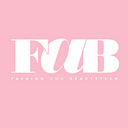Social sustainability and our new inclusive now. The TakeAway. FaB NYC.
A Fab panel hosted by Lin Chen. With Priyanka Ganjoo the founder of Kulfi, David Yi Good Light World (moderating), Kym Canter House of Fluff, Amira Rasool TheFolklore, and Abby Sugar PlayOutNY, Chloe Songer and Stuart Ahlum ThousandFell co-hosting.
The content of this Fab Medium post is curated by Miranda Thompson and Lin Chen, with the quotes of our guest speakers.
“Sustainability is paramount to our future, including recyclability, eco-friendly packaging and ingredients, but social sustainability is just as important. Finally in 2022, there’s more space for traditionally overlooked communities to grow and to thrive such as BIPOC, women, LGBTQIA+ founded companies. An empowering and uplifting conversation about social sustainability and inclusivity in the beauty and fashion industry.” Says David Yi moderating our Founders’ panel hosted in New-York City.
Priyanka Ganjoo. Kulfi.
Q: Why is uplifting South Asian stories important for the beauty industry?
A: We’re tired of being the side characters! Explore self-expression! Reclaim the narrative. The media often has a one-sided, flat view of South Asians, and we want to reclaim that narrative.
Gen Z is driving the narrative of inclusivity. Never felt beautiful growing up — “owning your own beauty is a personal journey for me”
Kym Canter. House of Fluff.
Q: Why is bio fur the future of sustainability?
A: “Our Mission at House of Fluff is to redefine fur for the next generation of consumers” — we do that by creating a better alternative to animal fur.
Polyester is very bad for the environment — petroleum bi-product, it takes 500 years to decompose. Our goal with BIOFUR is to create a fur that’s free of polyester and completely biodegradable. Our product is made to last and we are redefining luxury to create innovative and sustainable products.Hundreds of millions of tons of garment end up in landfills and next gen of consumers have woken up to climate change.
Abby Sugar
Q: Why is it important to create a space for those who are non-binary?
A: Not just about people who are non-binary. This is about inclusivity of all genders and authentic self-expression. Optimism in the new-gen for authenticity, inclusivity.
We often get DMs from people saying “your website is a safe space”. We know where our raw materials come from, we know who is making them. Design with equal gender expression.
Q: Why don’t they use “genderless?”
A: Uses the term “gender-equal,” don’t use gender-neutral, because the idea comes from “neutering” or removing.
Q: Is society at large ready for this gender-equal clothing?
A: Yes! Clothing is clothing — not a men’s dress or a women’s dress. 56% of Gen Z shops outside of their own gender.
Amira Rasool
Q: How is globalization essential to sustainability?
A: Tech opened up the market to people who are marginalized. Now there’s no excuse — need to adjust practices if they truly want to be equitable.
Not just getting them in the door, but figuring out how they can be treated well once they’re in those spaces.
Wanting access to African designers — they didn’t have access to D2C platforms for a long time.
How to create economic opportunities for these designers so they can increase exports? How can we use technology to connect people within the continent and within the diaspora?
Lin Chen
Q: Why is it important to solely uplift women businesses?
A: We value the perspectives that women hold. Working with only female-founded brands = fueling the female economy
Affordable and accessible price points?
The global wellness market is a $4.5 trillion industry — attaining wellness has become cost-prohibitive for most. We offer eco products at accessible price points because self-care should be accessible.
Stuart Ahlum & Chloe Songer
From an economics pov, retail has tight margins already — how are you going saddle a brand with more cost ?
Put circularity at the forefront of the brand. Recycling does drive the top-line revenue.
How do we take our existing product line, take it apart, and make sure that we can use the materials again?
All about circularity.♻️💚🌎. Role of the consumer activist, role of policy engagement (Eur has better oversight than North America).
Previously, there was no infrastructure for waste management and sustainability — lots of awesome people innovating in these spaces now!
**Why is thinking about sustainability good business? Why is this something that investors should care about?”
- Abby Sugar — it’s important as a startup to have your values set. Consumers are very conscious of waste and sustainability! Building a company that I want to be proud of!
- Kym — started her company in 2017 but no one wanted to talk about end-of-life solutions of products. A lot of this now is driven by consumer activism!
**What can consumers do other than support your brand?
- Kym — consumers should wear their clothes longer! Being conscious of after-life is HUGE!
- Abby Sugar — consumers are demanding that companies should be transparent! In the near future, hopefully, it isn’t up to the consumers — ex: straws. Corporations need to be held accountable. Conscious about where consumers are spending their money.
**What is at stake with the supply chain? How is Thousand Fell dealing with the supply chain issue?
- Chloe — manufacturing in Brazil. At one point we ran out of cardboard and aluminum. Products are 12 weeks late because they are stuck at the ports
**What’s one recent win?
- Priyanka — company celebrated our first birthday! 🙌
- Amira — did our best sales month last month!⚡️📈
If you want to watch the replay, please subscribe to the free quarterly newsletter. We are now 10,000 founders in 15 chapters, in America, Europe, and Asia 👉https://www.beautytechcommunity.com
